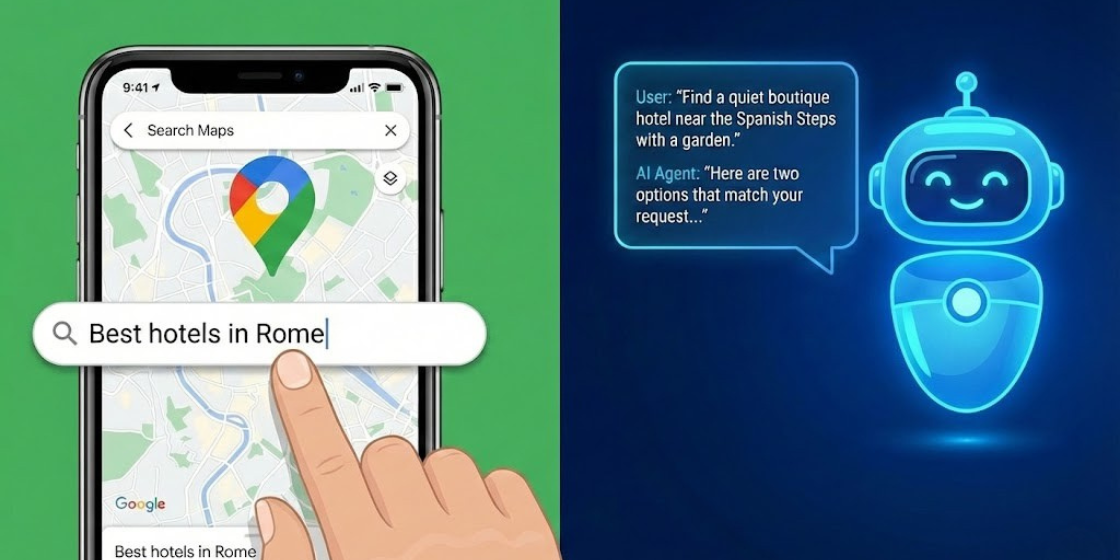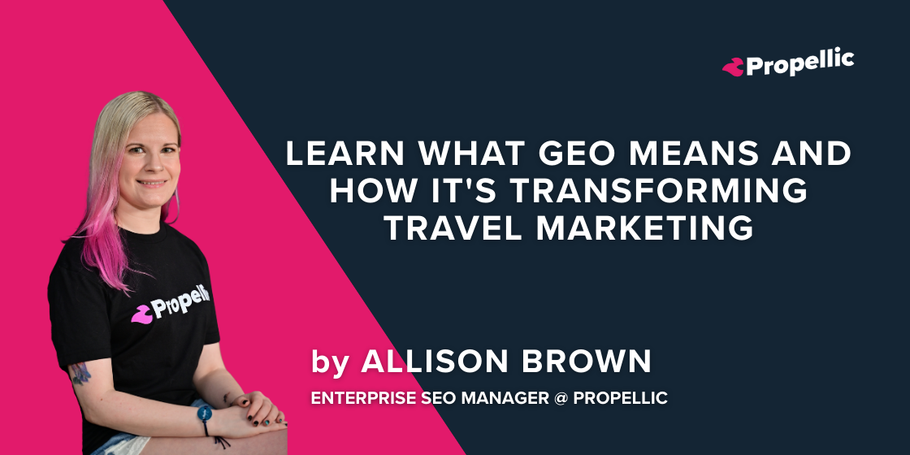Can you really trust medical information you find when searching on Google?
In light of the misinformation and confusion surrounding the coronavirus outbreak, there is increasing concern that the internet is no longer a trustworthy place to obtain information.
Even before the outbreak of COVID-19, there was cause for distrust among internet users. Any individual on the internet can pretend to be an expert on any subject, which makes it tricky to determine whether a source of information is accurate.
Even the influential sources we are familiar with appear to be doling out skewed information. In recent years, Facebook and Twitter were found to be manipulating news results based on who was on the receiving end, based on their Facebook likes and the accounts that they followed.
In our digitally run society, it is increasingly more important for users to have a secure place to find trustworthy information.
One way that Google defends against the growing concern of misinformation and disinformation is through the use of E-A-T and YMYL pages.
Google Search and Disinformation
While the outpouring of fake news has infiltrated common communication channels such as social media and other news sources, Google has always made it its mission to remain a resource of reliable information.
Google acts to separate itself from disinformation through the use of its algorithm and human search evaluators.
In fact, Google is so set against the release of fake news that, when a leaked version of its quality guidelines appeared in 2015, Google released its official Search Quality Evaluator Guidelines to counter any possibly inaccurate information.
These guidelines provided users with the knowledge of how Google evaluates web pages and uses its algorithm to differentiate between low-quality and high-quality content.
What We Learned From Google’s Search Quality Evaluator Guidelines
Google’s Search Quality Evaluator guidelines are 168 pages long. We read them for you, and have summarized the main points into the next 1,500 words.
The guidelines released by Google gave us many clues about Google's ranking factors (an SEO's dream), and through some detective work, SEO and marketing experts alike were able to deduce the following three content ranking factors, broken down in further detail in the following sections:
- Beneficial Purpose
- E-A-T
- YMYL
What is “Beneficial Purpose” in Google?
Beneficial purpose is a component that any page must have to provide value to users. In section 2.2 of Google’s Search Quality Evaluator Guidelines, we found that the purpose of a page should be - and this should come of no surprise - to help users.
Pages that are created with the intent to cause harm or deceive internet users will receive the lowest rating under the concept of beneficial purpose. Pages that are created with the sole intention of making money "with no attempt to help users" are also considered of the lowest quality, and therefore do not provide a beneficial purpose.
Google considers the following types of pages to be of “beneficial purpose”:
- Pages that are intended to provide information about a topic.
- Pages that are intended for sharing personal or social information.
- Pages that include pictures, videos, and other forms of media.
- Pages intended to express an opinion or point of view.
- Pages created for the purpose of entertaining.
- Pages built to sell products or services.
- Pages that allow users to post questions for other users to answer (forums, for example).
- Pages that allow users to share files or to download software.
Beneficial purpose and E-A-T are two factors that go hand-in-hand with regards to how Google ranks content. On the other hand, YMYL pages (that stands for Your Money your Life) are actually a special type of content that Google teaches its algorithm to rank differently. In order to understand how Google ranks YMYL content, we need to first understand E-A-T.
What is E-A-T?
Short Answer: E-A-T stands for “Expertise, Authoritativeness, and Trustworthiness,” and they’re three of the most important of the several-hundred factors Google uses to decide which pages show up in search results, and which don’t.
Long Answer: Although the acronym may make you first believe that it has something to do with filling up that little belly of yours, the letters E-A-T stand for Expertise, Authoritativeness, and Trustworthiness. The acronym, “E-A-T” was coined by Google in 2014 to explain how its algorithm determines the rankings of every single website on the internet and it doesn’t actually have anything to do with food (well maybe in some instances like dietary information).
If you’re familiar with SEO, you are likely also familiar with the concept of E-A-T and how Google uses it, if not the acronym itself.
E-A-T is one of the top factors Google’s algorithm uses to determine the quality of a page and how it should be ranked in search.
There are different signals about a page that Google's algorithm uses to determine the trustworthiness and authoritativeness of a piece of content, whether if it's on page or if it’s external websites linking back to the page.
Based on the topic and search query that is used, Google will adjust the weight of the different factors and signals used by its algorithm to determine how a page should rank in Google search.
- Expertise: Is the writer or the creator of the content on the page an expert on the topic? Do they have the necessary training and credentials to back up this information?
- Authoritativeness: According to Google, authoritativeness is determined by the creator of the main content, the main content itself, and the website it appears on.
- Trustworthiness: This part of the acronym refers to whether or not the author, the content, and the site itself is an honest and accurate source of information.
Based on the search query, Google adjusts the weight of certain ranking factors and signals, and the weight placed on EAT is particularly significant in the case of YMYL pages.
What Does YMYL Mean?
YMYL stands for “Your Money Your Life.” YMYL pages are pieces of online content that can affect a user's health, happiness, safety, or financial stability. If you need more clarification on what this means, it can apply to any of the following situations:
If you try to create content that tells a reader how to help someone dealing with depression - YMYL page.
If you've got a page telling users how to determine if they have the symptoms of COVID-19 - YMYL page.
If you’re releasing content teaching users how to fill out a tax return - YMYL page.
These are all YMYL pages. So what do they all have in common?

As mentioned before, if a user reads this content and receives bad advice or false information, it could negatively impact their health, safety, finances, and even happiness.
So, in the case of the tax return example, if you fill out your tax return incorrectly, you could get in trouble with the law and the IRS may come after you. Because of this, Google holds this type of content to a much stricter set of standards than a regular informational page or service page.
Non-YMYL content doesn't (necessarily) have to be written by an expert with formal training or education in order for Google to consider it quality content.
As long as the information is accurate and well informed, Google may still rank it in search based on how the algorithm scores the content on authoritativeness and trustworthiness.
The main takeaway is that, even if a YMYL page has extremely high trustworthiness (meaning the page has a lot of backlinks from other sites), if it isn't written by what Google’s algorithm considers an expert, it likely won’t rank in Google search.
In order to combat the black hat behavior of unqualified writers creating water-thin content on subjects ranging from preparing for a surgical procedure, to how to perform CPR, Google has refined its algorithm with updates such as Panda, Penguin, and Hummingbird. These updates help Google understand when content is written by an expert because let’s be honest - you don’t want to be taking surgical advice from an article written by someone who has no experience in the medical field.
What Makes Somebody an Expert?
So, we’ve talked a lot about having the status of “expert,” but how does one achieve this?

Section 4.3 of Google's Search guidelines say, “High-quality pages and websites need enough expertise to be authoritative and trustworthy on their topic.” What Google means by this is that in order for a page to possess the two qualities of "authoritative" and "trustworthy", it should feature content written by an "expert".
Who Google considers an expert depends primarily on the specific topic of the content. Pages require varying levels of expertise, depending on the question at hand, or in other words the beneficial purpose of the page.
For example, if the page is a forum for users to express their struggles and experiences with Bipolar Disorder, then Google would want to see stories and testimonials from individual people about their disorder and how it has impacted their lives. While a psychiatrist is generally considered an expert and an extremely reliable source, it wouldn’t make much sense for one to write about experiences of their patients in a forum, posting as if they were that person - which would, as a matter of fact, be illegal..
There is a difference between being a person who has an inside look on the disorder because they have personally experienced the disease and a psychiatrist who gets their understanding of the mental illness from their education and work with patients who have this disorder.
The information provided by the patients of a psychiatrist or others who have experienced bipolar disorder are more qualified to provide a personal experience and are therefore the experts for this type of content.
On the other hand, if there was a topic about the symptoms and causes of bipolar disorder, although an individual may have experience with these details due to their own time with the illness, a psychiatrist would be a qualified expert on such a topic.
Why would a psychiatrist be more of an “expert” than somebody with bipolar disorder? -- For multiple reasons, including that a doctor would have seen and studied an array of different patients that have dealt with the disorder, meaning that they are more qualified to speak on the variety of symptoms and causes that a person may experience.
They are also educated on the different studies and treatments that have been successful in helping patients - all qualifications that make them experts on the topic.
So what makes an expert according to Google’s E-A-T guidelines? You are an expert if you are qualified to write content that provides values and answers the intent of a searcher.
What Makes a Search Result High-Quality?
Google assigns a page quality ranking to every page on a scale from "Lowest Quality" to "Highest Quality". A page can be of high quality and still not of the highest-quality, the standard which is required for all YMYL pages to perform in search. So what exactly makes a page of the “highest” high quality?
In addition to all of the attributes that are required of a "High Quality" page, in order for a page to be of the "highest-quality", in Section 5 of the Search Quality Guidelines, Google says the website/content must have at least one of the following characteristics:
- Very high level of E-A-T
- A significant amount of high/highest quality main content
- A very positive website reputation for a website that is responsible for the main content on the page or a very positive reputation of the creator of the main content if the author does not belong to the website
By now you should have a fairly good understanding of what gives a page Expertise, Authoritativeness, and Trustworthiness, so we will dive shortly into the two other characteristics.
Very High-Quality Main Content - Y-M-Y-L
“Highest quality” pages are given this rating because they have been adequately created to serve a beneficial purpose while achieving this purpose extremely well. The quality of the main content of a page helps distinguish between a “high” and “highest” quality page.
The Main Content of a page is of the highest quality when it has been created with a thoroughness that requires a sizable degree of both time and effort, along with expertise, talent, and skill which provides a high level of E-A-T.
While high-quality content can be created by hobbyists or even people with everyday expertise, highest-quality content standards require accuracy and well-established medical, scientific, or historical consensus to achieve its beneficial purpose. The creation of unique or original content helps to distinguish high-quality main content, which is one of the reasons Google negatively reacts to duplicate content.
News articles can achieve the highest quality ranking provided by having unique content by documenting original reporting which provides information, quotes, or statistics that would not have been known, had the article not revealed it.
There is a lot of content on the internet, but it is the pages that bring a reliable and fresh perspective that are of the highest quality.
Very Positive Reputation
A highly positive reputation in Google's eyes is often based on awards of excellence or recommendations from widely known experts on the topic of the page's content.
In the case of YMYL topics, there is a careful consideration of the reputation that takes place. YMYL reputation is based on evidence and data from experts, awards, professional societies, and other reliable sources. For shopping pages, which can be a YMYL topic because it involves money, experts used as sources can include people who have used the store's site in the past to make purchases.
Here’s a List of What Google Considers “YMYL” Topics:
The following points are the types of content and topics that Google considers YMYL:
- News and current events: Topics include business, politics, science, technology, and informational events. However, this doesn’t apply to news topics such as entertainment and sports.
- Civics, Government, and law: Topics about voting, social services, legal issues, government agencies, public institutions, and other information that keeps citizens correctly informed.
- Finance: Topics on financial advice such as investments, cryptocurrency and NFTs, taxes, loans, retirement planning, banking, and insurance.
- Shopping: Topics related to the research or purchase of goods and services online.
- Health and Safety: Topics that include advice or information about medical issues, hospitals, drugs, and emergency preparedness.
- Groups of People: Topics or claims related to groups of people, which include information on the basis of race or ethnic origin, age, religion, nationality, and sexual orientation.
- Other: There are other topics that may affect a person’s financial health, safety, happiness, and safety that are not included in the topics above but may be considered as YMYL topics by Google’s algorithm. Some examples include fitness, housing information, and colleges.
You can find more information about these topics in Section 2.3 of Google’s Search Quality Evaluator Guidelines, shown below.

The following shows the top five results for the health-related search query “how to bring down a fever”:

Because these are YMYL pages, the top results are all medical websites.
Most, if not all of these articles are written and credited to a health professional, with reliable resources linked inside each article.
Each site also includes a detailed explanation of their editorial process, ensuring the reader that the information provided has been vetted, extensively researched, and comes from an expert on the topic.
Google also provides the following information about how to rank content with medical advice in Section 3.2 of the Search Quality Evaluator Guidelines:
“High E-A-T medical advice should be written or produced by people or organizations with appropriate medical expertise or accreditation. High E-A-T medical advice or information should be written or produced in a professional style and should be edited, reviewed, and updated on a regular basis.”
The quality of links pointing to the page also matters. The authoritativeness and trustworthiness of a medical page is high when there are recommendations from expert sources such as professional societies.
Reputation research is used to determine authoritativeness and trustworthiness, and sites like Healthline and Mayo Clinic have a good reputation for reliably providing medically accurate information.
It’s also interesting to note that you won’t find many Google Ads showing in the results for most YMYLsearch queries (especially medical ones). And as Google Ads are by-and-far Google’s primary source of revenue, this only emphasizes the company’s dedication to providing reliable results for content that is “Your Money Your Life.”
Note: While we haven’t found a specific policy on this, our founder, Brennen Bliss, reached out to Google to get confirmation on whether excluding ads from YMYL searches is a defined policy. We will update this post if we hear back.
Examples of Pages that are of Highest-Quality
Google requires the highest-quality rating standards for YMYL pages - not just high quality. There are many different signals and ranking factors that go into these ratings, which we can discern from examples provided by Google for what their human search quality raters have explained for their reasoning behind their quality rankings.
In order to acquire a better understanding of what makes a page of the highest-quality according to Google’s standards, we will take a look at the following examples.
Example #1: Mayo Clinic

Source: Meningitis - Symptoms and causes
The following characteristics are what gives the page its highest quality rating:
Type of Content: Health Information on a Hospital Page
Page Title: Meningitis - Symptoms and Causes
Page Quality Ranking: Highest Quality
Highest Page Quality Characteristics:
- Very high level of E-A-T for the purpose of the page
Explanation: Wikipedia is a highly regarded source of authority in Google's eyes, and according this Wikipedia article, the Mayo Clinic is currently ranked as the #1 hospital in the United States, a title awarded by the U.S. News & World Report. Awards and recognitions like these give the Mayo Clinic hospital a prestigious and positive reputation. For these reasons, Google identifies this page as of the highest quality.
Example #2: Handle the Heat

Source: The Ultimate Guide to Chocolate Chip Cookies
The following characteristics are what gives the page its highest quality rating:
Type of Content: Chocolate Chip Cookie Recipe on a Recipe Blog
Page Title: The Ultimate Guide to Chocolate Chip Cookies
Page Quality Ranking: Highest Quality
Highest Page Quality Characteristics:
- Very high level of E-A-T for the purpose of the page
- A significant amount of high-quality Main Content and original media features
Explanation: Even though the writer is not a celebrity chef or even a well-known professional chef, baking is an example of everyday expertise, which because this is not a YMYL page, qualifies the writer as an expert of the highest quality.
The author of this blog has documented her extensive experimentation and baking process with her personal chocolate chip cookie recipe. Her expertise is also demonstrated by the number of high quality and original content throughout the rest of the page. This is the reason why on many recipe blogs, you will notice a lot of commentary about the writer's experience or the history behind the recipe before they actually offer up the recipe to readers.
Because any page, in general, should try to achieve at least a high-quality rating, follow Google’s guideline recommendations to create quality content that will rank.
To Get Your YMYL Content Ranked… Provide Useful and Accurate Content
To bring all of this together Google uses different ranking weights for search queries that are YMYL related, and its guidelines on YMYL pages is what allows Google to remain a resource for qualified information. It’s also one of the reasons Google is a market leader in search, by a landslide.
If you are a company or service provider looking to add content to your site that falls under the category of YMYL pages, or if you want to create new content and aren't sure how to optimize it for the right search query, reach out to Propellic to set up a consultation for our SEO Copywriting Services. We’d love to see how we can help.
Want To Level Up Your Travel Marketing?
Subscribe to the NavLog, our bi-weekly travel marketing roundup, where you’ll be the first to know about breaking news that impacts travel marketers and access exclusive performance marketing strategies and practical tips you can implement from the marketers at the leading edge of the travel industry.




.png)

.png)

